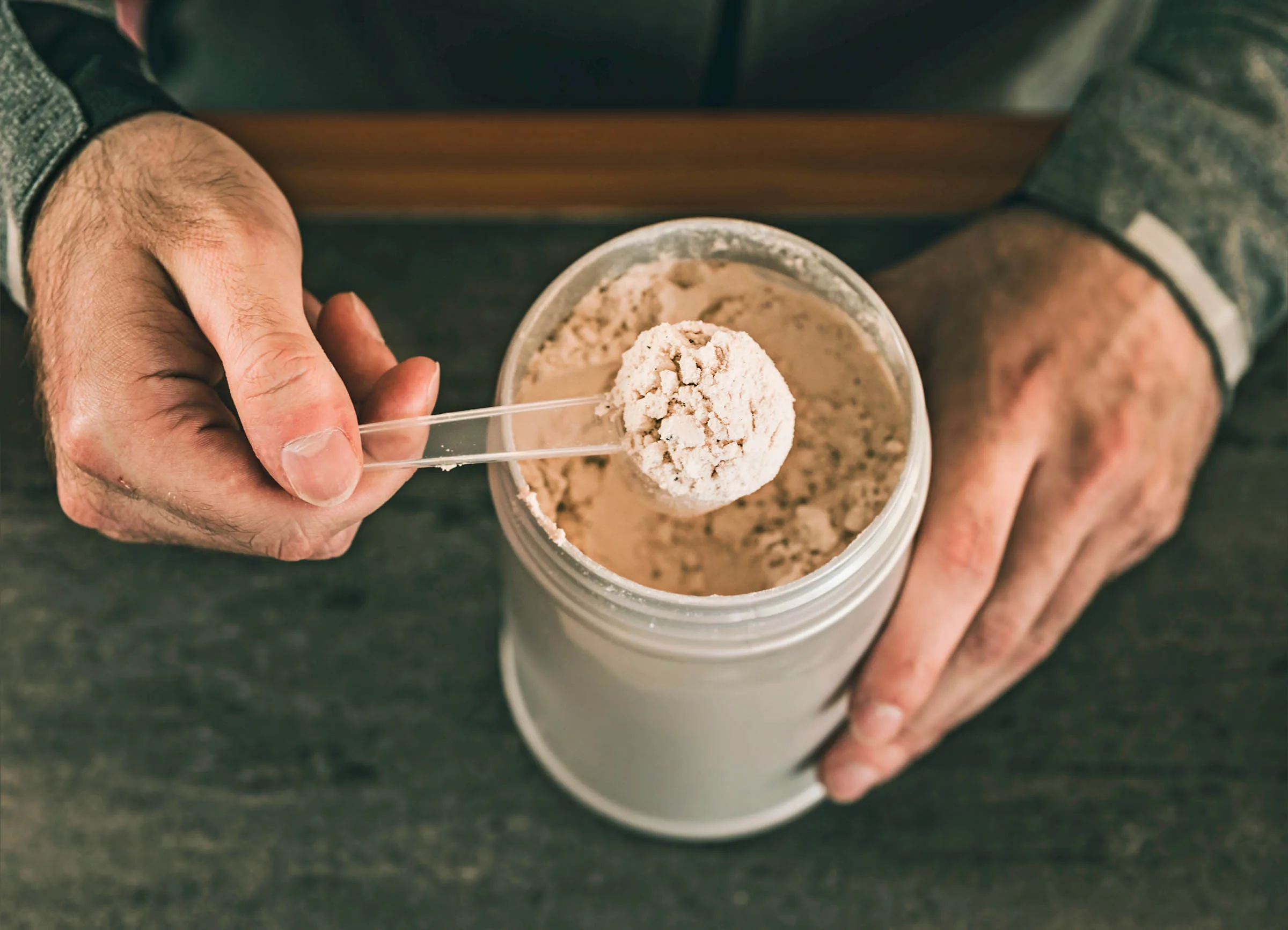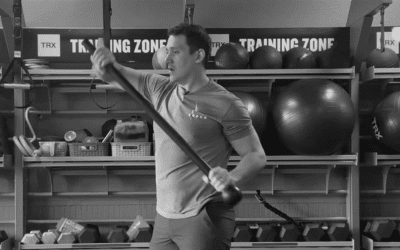Supplement Primer for Strength & Conditioning Athletes

The amount of misinformation out there on supplements is enough to make your head spin. So many athletes and coaches and influencers touting the benefits of this or that supplement, but wait! Don’t forget to use their referral code for a discount!
Which supplements are actually useful for your training? Where can you get some unbiased, science-based information?
Phil Wallace has been in the fitness industry for 10 years, working with the general population and seeing how small nutritional interventions can stack up to massive changes in people’s lives. In this blog, he takes the BS out of the industry and outlines the few supplements that actually work for most athletes.

Change the Way You Train
Why Are Supplements So Confusing?
An infinite number of supplements flood the nutrition market right now. Many of them are created with questionable ingredients just to make a profit, and offer false promises to solve all your problems. Build tons of muscle? Lose fat faster? More energy? Less stress?
There’s a pill or powder for everything.
Wading through the nonsense is exhausting. I’m gonna be real here: there are very few supplements that are actually necessary for optimal health. But this article is intended to give you a foundation of those tried-and-true supplements that benefit most bodies. You may want to experiment by adding a few things, but for the majority of your training time, these supplements should have a place in your routine!
Obviously, if you have conflicting medications, diet restrictions, physiological disorders or other complications when it comes to taking supplements, ask your doctor.
Certain health issues that require more specific supplementation, but that doesn’t mean the vitamin supplement itself is magic. It’s often the lack of said vitamins that causes issues. An iron deficiency might mean supplementing iron corrects this imbalance and gives you a huge burst of energy. It helps to view it as the lack of iron was draining you. The iron supplement didn’t give you energy so much as the lack of iron took it away.
However you manage your own systems, you know the facts: these aren’t shortcuts to your dreams. Supplements may support your goals, but you’ll still have to put in some serious work to achieve them.
That being said, a scoop of whey goes a long way. Let’s get into it!
A Few Supplements Worth Taking for Performance
Vitamin D
While I don’t like supplementing individual vitamins, the exception to this rule has to be Vitamin D. It’s so chronically deficient that it should probably be present in most people’s supplement routine! It’s become a bit of a superstar in the industry because so many people are deficient, which means adding it into your diet usually yields some really good results.
Author’s Note: “really good results” is kind of an arbitrary term. You generally can’t tell when a good supplement works in the moment, but over a few months you might find you’re feeling significantly better.
Vitamin D helps with bone and muscle strength, along with immune function. It also seems to prevent depression (hence the joys of summer and the SADs of winter), and have a positive effect on inflammation. You can get D from food and of course, sunshine. For this reason, many athletes choose to supplement vitamin D in the winter months.
Dosing for vitamin D is a little difficult since it’s a fat soluble vitamin, which means it can be stored/accumulated in the body. There’s a small risk of toxicity. If you wanted to be super accurate, you could get your blood panel done to find out what your 25-hydroxyvitamin-D levels are. Here in the UK we’d classify a deficiency as anything less than 20ng/ml, with optimal levels around 50-70ng/ml. Toxicity only seems to happen when you’re routinely taking 10,000iu per day for 6+ months.
I’d encourage you to get your bloodwork done, start a supplementation routine of between 1,000-4,000iu per day. Then get your bloodwork done again in 3-6 months. If your number has gone up to optimal ranges, stick at the dose you’re at. If not, try adding another 1,000iu. If you’re not in a position where you can routinely get bloodwork, you’d likely be safe in the very conservative range of 1,000-2,500iu per day.
Fish Oil
What an interesting supplement this is! Usually I’m skeptical of anything that boasts benefits in a multitude of different areas. However, fish oils do pretty much that. From hair, to skin, to joints, to brain health, to blood pressure to cardiovascular issues — seems like fish oils are a pretty magic pill. There is a good reason for that, and it goes back to what I mentioned at the start. If you’re deficient in something, bringing it up to scratch can do wonders.
Everyone has heard of Omega 3’s (n3) by now. They’re a relatively unique fatty acid chain. Our western diets are largely full of grains/starches and distinctly lacking in oily fish. This gives us a ton of omega 6’s & 9’s but not very many omega 3’s. Taking an omega 3 supplement (such as fish oil) can restore this balance and give us a more favorable ratio of omega 3-6-9. The result is an anti-inflammatory effect.
This is why fish oils can boast such a wide range of health benefits. Inflammation can manifest itself in a wide range of ailments — too much chronic inflammation will wreck your body. So, an anti-inflammatory can help reduce a wide range of ailments.
There’s a mountain of evidence now for omega 3’s, but more specifically we’re looking for DHA + EPA. There is another n3 called ALA, but it converts into DHA + EPA so poorly that you’re better off just going directly to the source.
We’re looking for about 1,000mg of DHA + EPA combined to reap the overall health benefits. This will probably work out at around 3-4g of fish oils. Different brands have different concentrations but generally speaking 1g of fish oil will give you about 300mg of DHA + EPA combined.
Be sure to take your food consumption into account when supplementing fish oil. Consistent doses of 3,000mg DHA + EPA might affect your immune system or increase risk of blood clotting. Always best to consult your doctor, especially if you’re on blood thinners.

Creatine
Ok, so this is what you came here for — a performance enhancer. Once again, yes, it’s a performance enhancer and super well researched. But I can’t say I’ve ever gone, “damn, I can really feel that creatine working.” All of these things just contribute to you generally feeling better all-around.
Creatine is one of the most researched supplements there is — it’s essentially proven to work, so most athletes take it to improve their performance. You might get an extra rep here and there, which is pretty cool. What’s even cooler is the emerging body of evidence on creatine’s ability to stave off cognitive degenerative diseases like dementia and Alzheimer’s.
Creatine supplies an energy system known as the creatine-phosphate system, which is used during particularly high intensity/short intervals. This makes it absolutely perfect for weightlifting and HIIT training, but not so necessary for lower intensity/longer duration cardio work. It works by saturating the muscle stores so you’re capable of producing more ATP (energy).
Because we’re trying to saturate the muscle, you can run a loading dose of creatine. Which would be around 20g per day for 5-7 days. After this period you would drop to a maintenance dose of around 5g per day. Do you need the loading dose? Not necessarily. It’ll just take a little more time to become effective. It’s been reported to give as much as a 15% performance increase.
Fun fact: Increasing the creatine stores in the brain also boosts blood flow to the brain, which can help recovery following head injuries like concussions.
Protein
I’m not going to go too far down this rabbit hole — protein is generally protein. Where it comes from isn’t SUPER important, provided you’re getting it from varying sources. What I will say about protein powders is they’re super convenient. I’m not sure where else you’d be able to get 50g of protein in under 30 seconds.
My personal options are whey and beef protein. Whey protein is king, because it absorbs the fastest. But it can be kinda heavy/filling or problematic if you’re lactose intolerant. Beef protein usually comes as more of a juice which makes it refreshing while being accessible to those with milk digestion issues.
If you’re training hard, you want to be consuming an above-average amount of protein in order to make gains (between 1.6g-2.4g of protein per kg of bodyweight). Protein shakes sure as heck make getting there a lot easier!
Sticking with these basics will definitely support your training and recovery. You can embellish this with whatever you want, be it weird mushrooms, psychotic pre-workout, or whatever else might tickle your fancy. But this stack has been part of my supplementation routine forever and probably always will be.
Honorable Mention: CBD
While still in the newer stages of research and long-term testing, CBD has shown promising results as a recovery tool, sleep aid, and relaxation/stress-management supplement. Check out this blog for a solid personal account on CBD as a recovery tool: CBD Primer: The Next Supplement Frontier for Athletes (And Everyone)
Find Your Perfect Training Plan
Sometimes all you need to reach your destination on your fitness journey is an expert guide. We've got you covered. Browse from thousands of programs for any goal and every type of athlete.
Try any programming subscription free for 7 days!
Related articles
3 Ways to Improve Mobility Without Stretching
Are you still trying the endless foam rolling and stretching exercises to get that deep squat position? We know how important mobility is for great, or even GOOD performance. All professional athletes have some comfortability in end ranges of motion. So, what else do...
The Ultimate Guide to Lunges: Queen of all Glute Exercises
Your glutes are the largest muscle group in your body. They’re responsible for almost everything your legs do—walking, running, jumping, squatting, lunging, and just standing upright. As far as moving through space goes, strong glutes are the bedrock of overall...
A Beginner’s Guide to Steel Mace Training
Author: Jesse Grund
Mace training will make you a better mover without it’s not confining you to a fixed space or predetermined range of motion. Second, it’s an offset load with 80 to 90 percent of the weight in the head. You’re also constantly having to resist rotation, which creates greater core engagement.

Join the community
Sign up for the latest training news and updates from TrainHeroic
Support
Made with love, sweat, protein isolate and hard work in Denver, CO
© 2023 TrainHeroic, Inc. All rights reserved.






